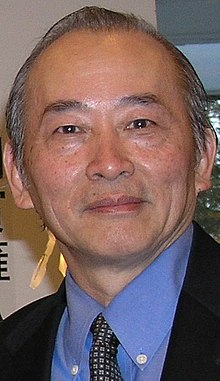Xu Wenli
| Xu Wenli | |
|---|---|
 |
|
| Born |
|
| Political party | CDP1998.org |
| Spouse(s) | He Xintong |
Xu Wenli (Chinese: 徐文立) (born on July 9, 1943), is from Anqing, located in the Southeastern province of Anhui, China. As one of the leaders of the China Democracy Party, Xu organized and participated in the Democracy Wall movement and acted as the chief editor for the journal April Fifth Forum. Xu was twice arrested by the Chinese government and sentenced to a total of 28 years in jail, of which he served 16. His work won him a nomination for the Nobel Peace Prize in 1999. After his exile to the United States on December 24, 2002, Xu received an honorary doctorate degree from Brown University, and has since worked there at the Watson Institute for International Studies as a senior research fellow.
Xu Wenli’s ancestral home is in Anqing, Anhui Province, China. He was born in Anfu County, Jiangxi Province, China, on July 9, 1943, during China’s Anti-Japanese War. His father, Xu Yuwen, was a general officer in the Anti-Japanese War, serving as a surgeon and the director of the Rear Hospital. After Chinese victory on August 15, 1945, Xu and his parents relocated to Nanjing, the new capital of the Kuomintang National Government. Afterwards, Xu successively lived in Chu County in Anhui Province, Fuzhou City in Fujian Province and Anqing City in Anhui Province, where he graduated from elementary school. In 1957, he left for Changchun City in Jilin Province to study at the High School Affiliated to Northeast Normal University, together with his eldest sister. In 1960, he left for Beijing to live with his mother and his second eldest sister and brother, while studying at Beijing No.7 High School (Bei Jing Shi Di Qi Zhong Xue). In 1963, after finishing high school with an outstanding performance, Xu decided not to apply for college because of his dissatisfaction towards the Chinese higher education system and its teaching methods. Determined to be an independent thinker and learner, Xu self-taught himself philosophy, political science, history, world literature, and supported himself on several study trips to the Chinese countryside from 1963 to 1964. Between the years of 1964 and 1969, Xu served in the People's Liberation Army Naval Air Force. After his demobilization, Xu worked at the Beijing Railroad Branch from 1969 to 1981. In 1977, he applied to the publication history major in the Journalism Department at Beijing University. On April 9, 1981, Xu was arrested.
...
Wikipedia
